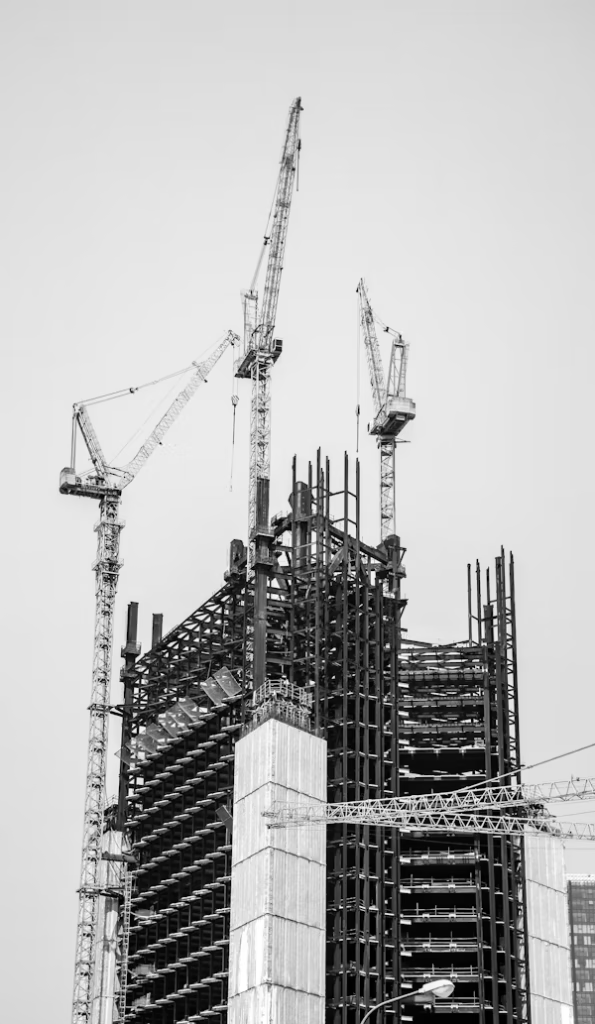I have been working on a range of construction projects including dams, bridges, roadworks, and tunnels. I have learned that planning and management can make or break a project. No matter the size, a well-thought-out plan ensures smooth execution, budget control, and quality outcomes. In this post, I am sharing my experiences and practical insights into construction project planning and management.

What Construction Project Planning and Management Involve?
Planning means setting timelines, allocating resources, and organizing tasks in the correct sequence. Management is about keeping that plan on track coordinating teams, solving problems, and making sure the project gets delivered as expected. I’ve seen firsthand how solid planning and proactive management prevent costly mistakes.
Why Effective Planning and Management Matter
- Meeting Deadlines – Delays are very expensive. A structured schedule helps avoid unnecessary setbacks.
- Budget Control – Poor cost estimation can derail a project. Unexpected expenses need to be accounted for early.
- Maintaining Quality – Oversight ensures the project meets required standards and avoids costly rework.
- Managing Risks – Every project has uncertainties. Spotting potential issues early allows for better solutions.
- Optimizing Resources – Efficient use of labour, materials, and equipment keeps the project on track and within budget.
My Approach to Construction Project Planning
1. Laying the Groundwork
- Clearly defining project goals and requirements.
- Conducting feasibility studies to assess risks and viability.
- Identifying key team members and stakeholders.
- Setting a preliminary budget and resource plan.
2. Developing the Plan
- Creating a project schedule with Primavera P6 to manage timelines effectively.
- Estimating costs accurately and allocating budgets.
- Reviewing similar past projects to anticipate challenges.
- Planning material procurement and ensuring timely deliveries.
- Setting measurable performance indicators to track progress.
3. Executing the Plan
- Ensuring all materials, equipment, and manpower are ready as per schedule.
- Conducting routine site inspections to maintain quality control.
- Addressing on-site challenges quickly to prevent delays.
- Implementing strict safety measures to minimize risks.
4. Keeping Things on Track
- Regularly reviewing progress and comparing it to the plan (Baseline).
- Making necessary adjustments when unexpected issues arise.
- Keeping all stakeholders informed through progress updates.
- Resolving problems quickly with a hands-on approach.
- Look for Change Management
5. Finishing Up the Project
- Conducting final inspections to ensure all work meets the expected quality.
- Completing required documentation and obtaining approvals.
- Officially handing over the project to the client.
- Reviewing successes and areas for improvement for future projects.
My Tools and Strategies
- Scheduling Software – Primavera P6, MS Project for detailed planning.
- Cost Management Tools – Excel, CostX, and Candy CCS for tracking expenses.
- Collaboration Platforms – BIM 360, Procore for seamless communication.
- Risk Management Approaches – SWOT Analysis, Monte Carlo Simulation to prepare for uncertainties.
- Progress Monitoring – Reports and dashboards for real-time updates.
Lessons I’ve Learned Along the Way
- Technology Helps, but Experience is Critical – No software can replace on-site decision-making skills.
- Monitoring Progress Avoids Surprises – Frequent checks catch problems before they escalate.
- Good Communication is a Game-Changer – Keeping teams aligned prevents costly errors.
- Safety is a Priority, Not an Option – Overlooking safety can cause delays, financial loss, and serious incidents.
- Adaptability is Key – Every project has surprises, and flexibility in problem-solving is essential.
Final Thoughts
Through experience, I have learned that successful project planning and management require a mix of structured planning, hands-on problem-solving, and constant learning. Challenges are inevitable, but with the right approach, they can be handled efficiently to keep projects on track.
What are your biggest challenges in construction project planning? Let us discuss in the comments!
If you want to learn some Project Planning & Control You can refer below courses
